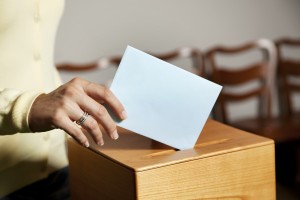A few days ago, the New York Times published this excellent piece on the pandemic-induced shortage of sperm and the rise of “sperm kings” — men putting themselves out there, way out there, through the internet and other means, to widely offer their sperm to those looking to conceive. One of the sperm kings featured in the article was a guest on the podcast I co-host, back in 2019. Although the article didn’t mention it, I will go ahead and throw out there that “Kyle Gordy” is not the gentleman’s real name. (There was some skepticism as to the truth of his story, as well as his intentions, and in a rare request for a guest on the podcast, he was asked to undergo a background check. Good news. No criminal record to speak of, ladies.)
Given the numerous scandals with various sperm banks, as well as the new shortage of supply, it’s no wonder that those hoping for a family (but missing a key ingredient) are turning to such gray-market sources. For those considering such a route, I say, buyer (or donation recipient) beware! Here are the top three legal problems with sperm king donor arrangements.
- “Natural Insemination,” AKA Sex With The Donor
As noted in the article, as well as explained by Gordy and other sperm kings, these popular donors frequently provide the goods through “natural insemination” (or “NI,” if you are really into this world). Translation: sex. They will have sex with you in order to “deliver” their sperm to you. Directly. Like, really directly.
This presents the riskiest option legally. To be sure, most states have some form of a donor statute, providing protection for recipients to be recognized as the legal parents of their donor-conceived child, and providing donors with no legal rights or responsibilities to resulting children. But these state laws invariable do *not* include “natural insemination,” and often specifically clarify that any sexual activity resulting in a child is outside of the protection of the statute. This is exemplified by sperm king Ari Nagel, and the multiple paternity cases that have been successful against him, leaving him financially responsible for various children resulting from his NI or other nonstatutorily-compliant donation activities.
- Contracts, Or Lack Thereof
As an attorney focused on assisted reproductive technology law, of course, I am going to say you should hire an attorney — two really (one for recipients, one for donor) — to draw up and negotiate a contract before any goods are exchanged. But really. This is a vital protective step for both sides of the transaction, as well as for the future children. Children, after all, are not replaceable widgets. And there are some very real issues that the parties should be discussing in detail and agreeing upon, in writing, before moving forward. Such as what kind of future disclosures will be shared. If the donor finds out about a serious genetic condition that he could have passed on through his donation, will he agree to contact all recipients promptly? What are the rights of the resulting children to know who the donor is or how many half-siblings might be out there?
While there are exceptions to every rule, I am guessing that Sperm Kings frequently do not go through the time and effort to enter into well-drafted and carefully thought out contracts with their recipients. Scarily, in the podcast with Gordy, he noted that one donation recipient asked him to sign a contract, so he merely signed (another) fake name. Let’s see how long that holds up! Not a legally recommended route.
- Marrying Your Half-Sibling
At least one of the sperm kings within the New York Times article admitted he was looking to “get his numbers up” — the number of children conceived from his sperm. The noncynics among us tend to attribute best intentions to sperm donors. We hope that these donors really just want to help others in this personal and meaningful way. We don’t want to think that there is something narcissistic or twisted about a man actively trying to sire as many children as possible. Given certain cases, however — such as the Dutch donor with possibly 1000-plus children — the reality is that some donors have some pretty questionable motives that exponentially increase the chance that one ends up unknowingly dating (or marrying) a half-sibling.
Professor Jody Madeira, a law professor steeped in the legal issues of assisted reproductive technology and sperm king-type behavior, readily sympathizes with individuals wanting children, but having trouble accessing the donor sperm they need. However, Madeira explained, “Men who provide sperm to others over Facebook groups and other sites are engaging in reckless behavior. If they have an STD or a genetic condition, there is little that those who use their samples to conceive a child can do to hold these donors accountable.” Moreover, there is no way to track how many children each of these serial donors conceives, because no one but the donor himself can track the donation activities.
Don’t get me wrong. Donors are amazing, dream-fulfilling souls. But I don’t think it’s too much to ask that each donor limit their dream-fulfilling activities to a reasonable number of lucky recipients, and be willing, for the sake of the recipients, the future offspring, and themselves, to go through the work of following state law and having lawyers assist with a contract protecting all parties — and hopefully looking out for the interests of the next generation.
 Ellen Trachman is the Managing Attorney of Trachman Law Center, LLC, a Denver-based law firm specializing in assisted reproductive technology law, and co-host of the podcast I Want To Put A Baby In You. You can reach her at babies@abovethelaw.com.
Ellen Trachman is the Managing Attorney of Trachman Law Center, LLC, a Denver-based law firm specializing in assisted reproductive technology law, and co-host of the podcast I Want To Put A Baby In You. You can reach her at babies@abovethelaw.com.




 Ellen Trachman is the Managing Attorney of
Ellen Trachman is the Managing Attorney of 



 Kathryn Rubino is a Senior Editor at Above the Law, and host of
Kathryn Rubino is a Senior Editor at Above the Law, and host of 
 Jordan Rothman is a partner of
Jordan Rothman is a partner of 








